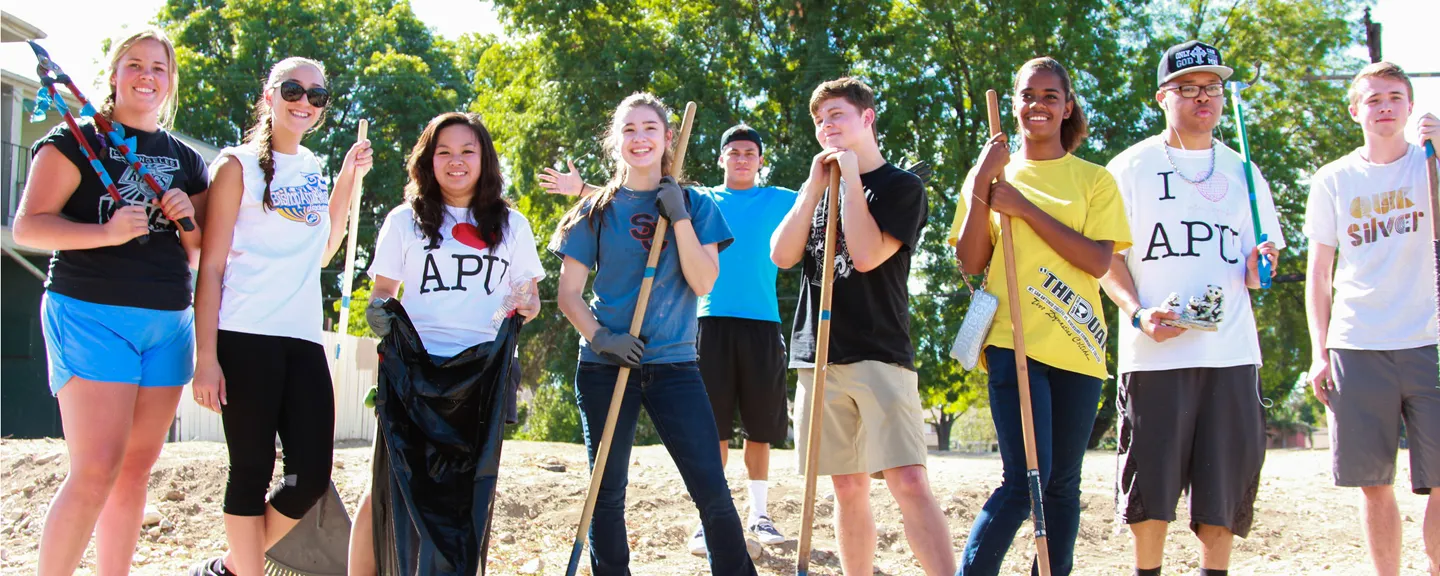- Home
- >
- APU Articles
- >
- News Article
How Service Trips Enrich the College Experience
November 21, 2017 | Written By Heather Nelson

Engage With the World
Service trips can serve those in need locally and globally. Students might tutor elementary school students, participate in outreach across the border in Mexico, or even head overseas to work alongside reputable organizations lending a hand in orphanages, mobile medical clinics, and more. So, why does this matter? Matt Browning, Ed.D., who oversees the Center for Student Action at Azusa Pacific University, has some insight.
“Service trips give students the opportunity to engage with the world,” Browning explains. “Students can come alongside other organizations to understand community development. This challenges them to think beyond what’s in front of them and to become culturally competent men and women.”
Students with firsthand experience see these trips as incredible opportunities to look beyond themselves by learning from the world around them.
“It can be easy to become narrow-minded staying in the same place your whole life,” shares Shea O’Gorman, a junior marketing major at Azusa Pacific. “Service trips provide an opportunity to see beyond yourself and your own culture. They cause you to expand and broaden your beliefs and perspectives.”
O’Gorman, who’s traveled to the Czech Republic and El Salvador with APU’s action teams, also points out that the trips have improved her bonds with fellow classmates.
“Trips are a great way to build community with other students,” she says. “It’s a unique type of bond that’s created by serving together, and when you get back to campus, that sense of community grows.”
Experience a Richer Learning Environment
A study on the effects of short-term mission trips found that they instill important long-term values in students who participate, like gratefulness, compassion, and understanding. After serving on a short-term trip, many students felt less materialistic and more grateful for the things they have. Participants also expressed a deeper appreciation and respect for different cultures. Not only are students traveling and seeing new places, but they are expanding their worldview and feeling more compassion.
By stretching themselves outside of their comfort zones, efforts students engaged in service efforts reap the benefits of putting themselves in new situations. They learn to communicate cross-culturally, become life-long learners with a global worldview, and grow their leadership skills by working alongside established organizations. In other words, through serving, students grow academically and personally.
“There is something about these trips—about stepping out of what’s comfortable—that allows students’ learning environments to increase significantly,” Browning explains.
Learning environments become incredibly rich when students are challenged to be stretched in their faith, in their cultural awareness, and in their own abilities. All students should have the opportunity to grow in these crucial ways as they help communities in need.
Every Opportunity Is a Learning Opportunity
One of the most important ways parents and guardians can support their students is by cheering them on inside and outside of the classroom.
Families can help students realize that college is not just about going to class or hanging out, but that every opportunity is a learning opportunity. Think about all of the ways your student can learn—not just about a particular major, but also about the world.
Take time to ask what he or she wants to get out of college. If the answer is “growing academically and personally,” serving the local and global community is an incredible resource to help meet those goals. Simply being supportive when your student has the desire to serve is one of the best ways to encourage a well-rounded college experience.
“Be supportive when students want to go,” Browning suggests to parents. “The more parents can trust that service trips are significant, lifelong learning opportunities for their child, the more the student can grow.”